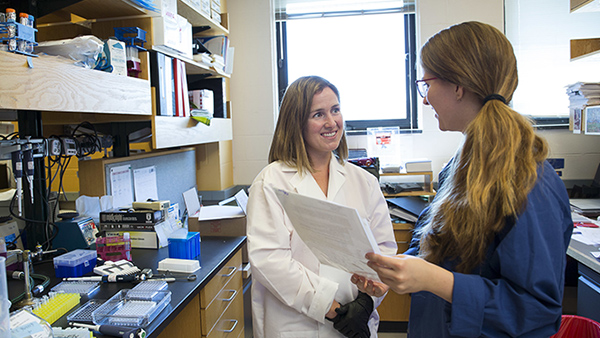Mucosal Immunology and Biology Research Center
The Mucosal Immunology and Biology Research Center at Massachusetts General Hospital conducts basic research in mucosal immunology topics ranging from Salmonella food poisoning to intestinal inflammatory diseases such as celiac disease.
Recent research news from the Mucosal Immunology and Biology Research Center at Massachusetts General Hospital.
Study Identifies Alterations in the Blood Microbiome in Celiac Patients
A recent study from Gloria Serena, PhD, has identified alterations in the blood microbiome composition and taxonomic diversity in celiac patients as compared to healthy subjects. Although preliminary, these findings suggest that changes in the blood microbiome may contribute to the pathogenesis of celiac disease and open the possibility of new therapeutic and diagnostic tools for celiac patients.

Five Things to Know: The Blood-Brain Barrier, Intestinal Permeability and Autism
Researchers from the Center for Celiac Research and Treatment at Massachusetts General Hospital and the Mucosal Immunology and Biology Research Center at MassGeneral Hospital for Children (MGHfC) recently came out with a study on the connections between the blood-brain barrier, intestinal permeability and autism. Here are five things to know.
Hurley Searches for Cystic Fibrosis Treatments by Developing a Lab Model of the Respiratory Tract
Mass General researcher Bryan Hurley, PhD, is exploring how controlling the infection and inflammation associated with cystic fibrosis could be the key to developing improved therapies for patients.
Mapping the Connections Between Allergies and the Microbiome
Why do some children develop severe allergies or autoimmune disorders when their parents have no history of either condition? Rather than looking to genetics for clues, the answer may lie in the communication that occurs between the T cells of the immune system and the bacteria in the gut, particularly at a very young age.
Nitya Jain, PhD, a researcher at the MassGeneral Hospital for Children’s Mucosal Immunology and Biology Research Center, is studying how changes in the bacterial population of the gut influence T cell development in the thymus, and how signals between the two drive this process.
Faherty Hopes to Stop Shigella from Wreaking Havoc in the Digestive System
A research team at Massachusetts General Hospital is hoping to create new treatments for shigellosis, a potentially fatal digestive disorder, by factoring in genetic changes that occur in Shigellabacteria during the journey through the human digestive system.
